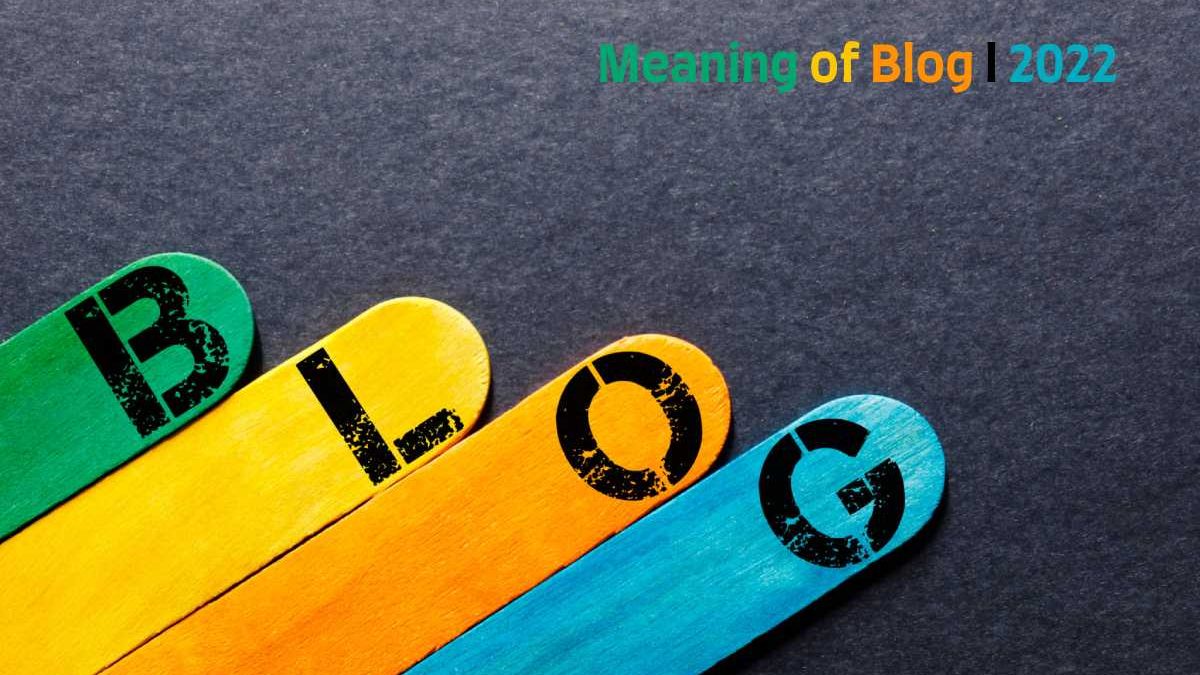A blog is a website that allows the creation and dissemination of content, in most cases, on a specific topic and in which knowledge and opinions are shared regularly.
Blogs are also called virtual blogs or virtual diaries, depending on the purpose they served when their use became widespread.
One of its most outstanding features is the creation of articles (also called entries or posts) displayed in reverse chronological order (the most recent appears first).
Table of Contents
What is a Blog?
The word blog derives from a weblog, a term created by the American writer Jorn Barger in 1997 to shorten the phrase “ logging the web ” (register or annotate on the web).
Later, in 1999, the blogger Peter Merholz converted the word weblog into the phrase we blog, and since then, the blog has been use as a noun and a verb (to blog).
That same year, the Blogger platform emerge, which allow the creation of online blogs, and which later led to the frequent use of terms related to this activity, for example, blog, blogger (blogger), blogosphere, and blogging (the action of updating a blog regularly).
The technical advantage of a blog concerning a web page is that any user can use it without needing to have any degree of knowledge in programming or web design.
In addition, the costs of creating or maintaining an online blog are generally meager or even free compared to what it costs to have your website.
On the other hand, blogs also allow the creation of a community, understood as a group of people (users of other blogs and readers) united by common interests, which generally have to do with the topic that is regularly written about on the website.
These communities are create from the interactions between their participants. For example, comments on blog posts, forums, recommendations from other blogs, and events outside the online world.
Although there are practically no limitations regarding the topics covered in blogs, the most popular ones involve cooking, health, travel, politics, and digital Marketing.
Blog History
The history of blogs began in the nineties and is precede by Internet forums where users could generate comment threads.
The first blogs arose as users needed to keep a personal journal online. Which anyone with an Internet connection could read.
Justin Hall. A college student from the United States, became one of the pioneers of this format. Posting details about his life on his links.net blog in 1994.
With the emergence of the Blogger platform in 1999. The possibility that anyone could create their blog without technical knowledge catapulted virtual blogs and a new way of generating digital content.
Various blogging services exist today. Allowing digital readers to access a wide diversity of topics, opinions, and knowledge shared by bloggers from anywhere in the world.
From 2004 to 2016. The German international broadcasting service (Deutsche Welle) awarded the work of bloggers dedicated to disseminating information related to human rights, freedom of expression, politics, and digital security with the Best Of Online Activism (BOBS) award.
This accounts for the relevance of blogs, not only in the online world but also in public opinion.
Characteristics of a Blog
A blog has several functionalities that facilitate its use by bloggers, among which the following stand out:
- A blog allows you to add text, images, and photographs, which helps to expand and enrich the content and make it more attractive to readers.
- Links to other blogs or websites can be add, allowing readers to expand on the information.
- Allows the embedding of multimedia resources (videos, audios, gifs).
- It can be redistribute, either through subscription to content or because it can be share through social networks. That increases the chances that the blog will reach more readers.
- The published content can be personal, corporate, commercial, etc. The objective can be as varied as the topic: inform, entertain, educate, share knowledge, and sell, among others.
- Although there are no limitations in this regard. A blog is expect to publish content regularly (daily, weekly, fortnightly, monthly, etc.).
Blog Types
Blogs can deal with multiple topics, so a classification in that sense would be almost infinite. However, depending on the predominant channel or resource, it may have various names. These are the most common:
- Vlog: video content
- Photolog: content in photographs
- Link log: includes links.
- Sketch blog: is a portfolio of sketches
- Tumblelogs: short-length range that combines multiple media (photo, video, gif, etc.)
Uses of the Blog Today
In digital marketing, blogs are often resources companies use to create and drive content marketing strategies. The objective is to create valuable content that is useful for real or potential consumers without directly promoting a product.
For example. A baby product brand may have a blog on its official website that shares tips on maternity. Childcare, or pediatric advice.
Blogs are also use by those who want to make themselves known as specialists in a specific subject. So they usually publish valuable content frequently, not only to demonstrate their expertise in the matter but to achieve a subscriber base. Generate partnerships, inform about upcoming events and boost your search engine rankings.
Also Read: What Exactly Marketing Is – About, Principles, Types, and More

